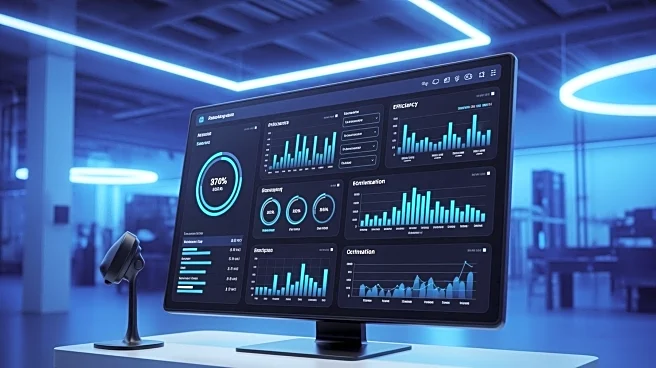What's Happening?
Tom Wright, a Manufacturing Waste Expert at Biffa, highlights the importance of smarter waste reporting in manufacturing. As sustainability becomes a key business metric, manufacturers are moving from
manual tracking to data-driven approaches to manage waste. This shift is driven by regulations like Extended Producer Responsibility (EPR), which demand greater transparency. By consolidating data through a single waste management partner, manufacturers can gain clarity and compliance confidence. AI-enabled systems are also being used to detect contamination, improving recycling quality and reducing costs.
Why It's Important?
Efficient waste management is crucial for sustainability and can provide a competitive advantage for manufacturers. By adopting smarter reporting and data-driven approaches, manufacturers can improve compliance, reduce costs, and enhance their sustainability performance. This shift is particularly important as regulations tighten and consumers demand more transparency. The use of AI and digital tools in waste management can lead to significant improvements in efficiency and environmental impact, benefiting both businesses and the environment.
What's Next?
Manufacturers are likely to continue adopting advanced waste management technologies and data-driven approaches to meet regulatory requirements and improve sustainability. As AI and digital tools become more accessible, smaller manufacturers may also begin to implement these solutions. The industry may see increased collaboration between manufacturers, waste management partners, and policymakers to promote sustainable practices and drive innovation in waste management.











